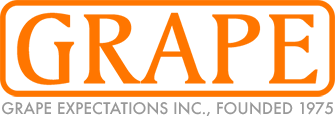Gunderloch Riesling GG Nackenheimer Rothenberg
WHY WE LOVE IT
- The Nackenheimer Rothenberg is without question the most important site at the Gunderloch estate.
- It yields wines of striking mineral character paired with a broad spectrum of expressive spice and fruit aromas.
- The vineyard has a slope varying in steepness from 30-80% and is comprised of 290-million-year-old red shale plates.
- Family Hasselbach of the Gunderloch Estate own around 11 acres of this prime vineyard made up predominantly of very steep parcels.
Varietal Composition: 100% Riesling
Elaboration: 100% aged in 600L neutral barrels and fermented naturally.
Tasting Notes: “Clear, intense and salty on the full-bodied and elegant palate, this juicy and powerful Riesling shows dense texture, tightly woven structure and finishes with grip and good length. Very good aging potential.” – Wine Advocate
PRESS
2014 – 91 Wine Spectator, 91+ Wine Advocate, 92 Vinous
PRODUCER BACKGROUND
With the sad passing in 2016 of renowned winemaker Fritz Hasselbach, Johannes Hasselbach (6th generation at Gunderloch) has now officially taken the winemaking reins at the Gunderloch estate. The 126 year old estate is clearly in good hands.
Fritz has bequeathed to his son Johannes a thriving estate of approximately 25ha of vines in some of the top vineyards of the “Roter Hang” (“red slope”) area in the Rheinhessen appellation. In Nackenheim they own a nearly monopole position in the grand cru Rothenberg (65% of the estate’s holdings) which is planted completely to Riesling. The average yield is held to 45 hl/ha, amongst the lowest in Germany, resulting in wines of high extraction and great quality. Minimum ripeness for the various quality levels is significantly above the requirements of the German wine law. The wines are never de-acidified and in high acid vintages bottling is often delayed to allow the wines to harmonize and soften. The cellar work is accomplished with a minimum amount of handling and has traditionally been very reductive in style–although that may gradually start changing as Johannes pursues his own explorations in the cellar.
Production for the whole estate is 40% dry, 30% off-dry and 30% fruity-to-sweet. Again however, those numbers are starting to skew drier, which of course reflects the general trend in German winemaking. The Rieslings from here, particularly those from the Rothenberg, are some of the finest in Rheinhessen and in Germany. These are full, elegant wines full of yellow fruits, great structure and fine acidity for long aging.


